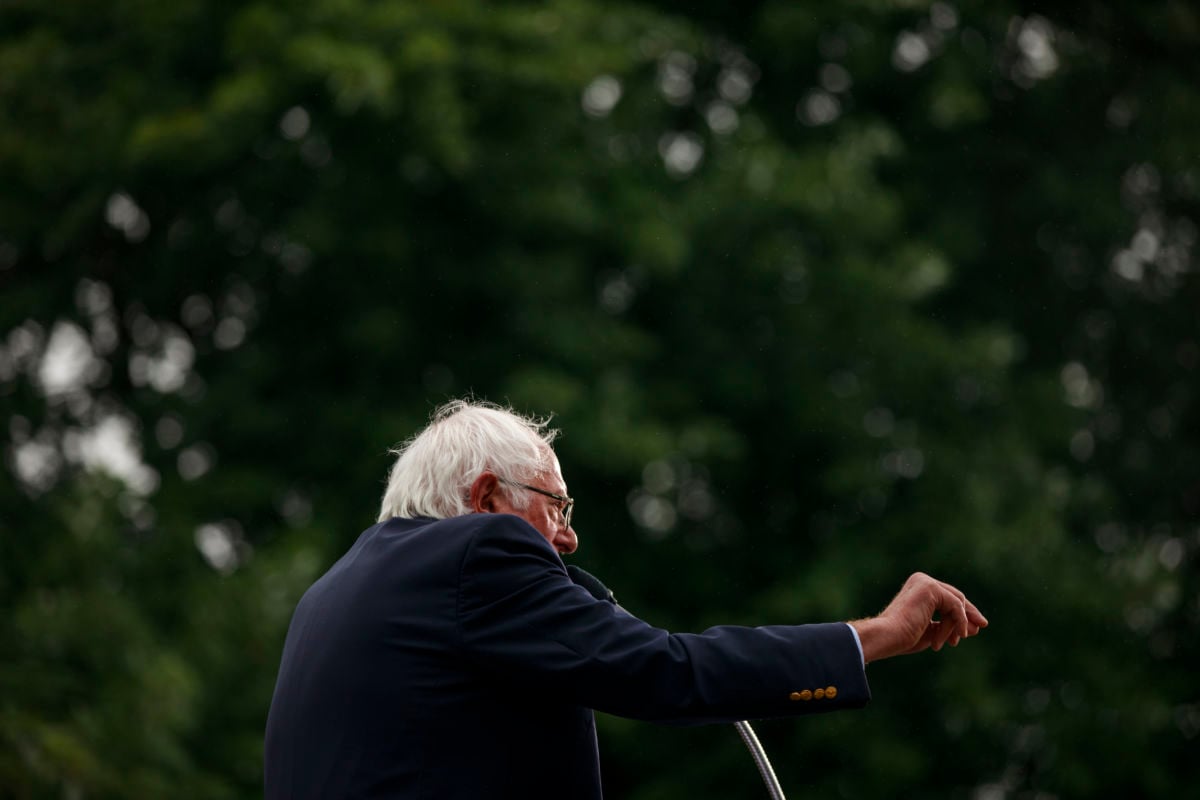Did you know that Truthout is a nonprofit and independently funded by readers like you? If you value what we do, please support our work with a donation.
To tackle “outrageous and grotesque and immoral” levels of inequality in the United States, Sen. Bernie Sanders on Tuesday proposed a new wealth tax on the richest Americans that economists say would slash the fortunes of billionaires in half over 15 years and raise an estimated $4.35 trillion in revenue during the first decade.
“I don’t think that billionaires should exist,” Sanders, a 2020 Democratic presidential candidate, told the New York Times in an interview. “This proposal does not eliminate billionaires, but it eliminates a lot of the wealth that billionaires have, and I think that’s exactly what we should be doing.”
Sanders’s “Tax on Extreme Wealth” plan, detailed on the senator’s campaign website, would create a one percent tax on wealth between $32 and $50 million, with the rate progressively increasing on richer Americans.
“A progressive wealth tax is the most direct policy tool to curb the growing concentration of wealth in the United States,” economists Gabriel Zucman and Emanuel Saez wrote in a letter analyzing Sanders’s proposal. “Senator Sanders’s very progressive wealth tax on the top 0.1 percent wealthiest Americans is a crucial step in this direction.”
Sanders’s website outlines the framework of the tax plan:
- 1 percent tax on wealth from $32 to $50 million;
- 2 percent on wealth from $50 to $250 million;
- 3 percent on wealth from $250 to $500 million;
- 4 percent on wealth from $500 to $1 billion;
- 5 percent on wealth from $1 billion to $2.5 billion;
- 6 percent on wealth from $2.5 billion to $5 billion;
- 7 percent on wealth from $5 billion to $10 billion;
- 8 percent on wealth over $10 billion.
“At a time when millions of people are working two or three jobs to feed their families, the three wealthiest people in this country own more wealth than the bottom half of the American people,” Sanders said in a statement. “Enough is enough. We are going to take on the billionaire class, substantially reduce wealth inequality in America, and stop our democracy from turning into a corrupt oligarchy.”
To prevent the rich from evading the wealth tax, Sanders’s plan would establish a number of oversight and enforcement mechanisms, including:
- Creating a national registry and significant additional third-party reporting requirements;
- Increasing IRS funding for enforcement and requiring the IRS to perform an audit of 30 percent of wealth tax returns for those in the one percent bracket and a 100 percent audit rate for all billionaires;
- Creating a 40 percent exit tax on the net value of all assets under $1 billion and 60 percent over $1 billion for all wealthy individual seeking to expatriate to avoid the tax; and
- Making enhancements to the international tax enforcement and anti-money laundering regime, including the strengthening of the Foreign Account Tax Compliance Act.
On his website, Sanders said the revenue raised from the wealth tax would be used to fund the senator’s other progressive policy proposals, such as Medicare for All and universal childcare.
“Over the last 30 years, the top 1 percent has seen a $21 trillion increase in its wealth, while the bottom half of American society has actually lost $900 billion in wealth,” the senator said. “In other words, there has been a massive transfer of wealth from those who have too little to those who have too much.”
“For the sake of our democracy and working families all over America who are struggling economically,” Sanders added, “that has got to change.”
Press freedom is under attack
As Trump cracks down on political speech, independent media is increasingly necessary.
Truthout produces reporting you won’t see in the mainstream: journalism from the frontlines of global conflict, interviews with grassroots movement leaders, high-quality legal analysis and more.
Our work is possible thanks to reader support. Help Truthout catalyze change and social justice — make a tax-deductible monthly or one-time donation today.
